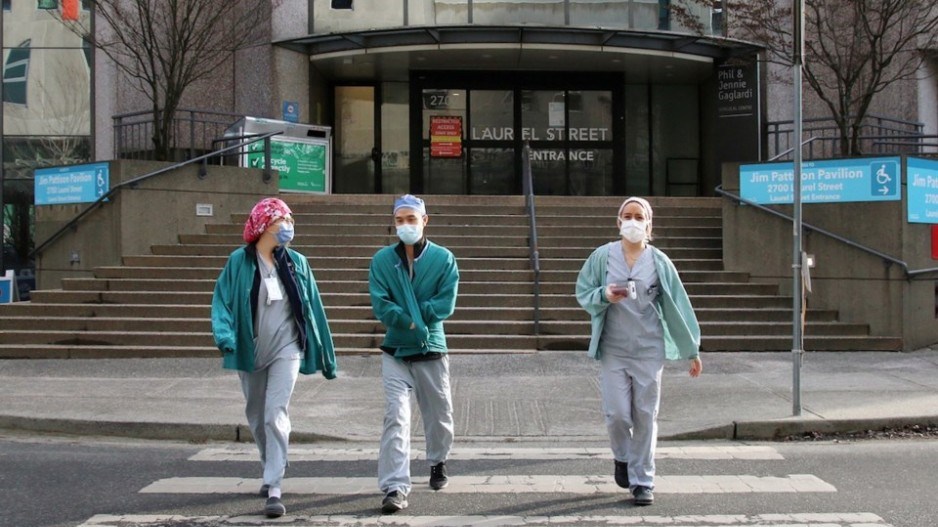B.C.’s health ministry has undergone a massive shakeup, with seven senior executive positions being eliminated and at least three top officials abruptly departing government in what the ministry is calling a “right-sizing” of health leadership.
The internal reshuffling was so large it prompted ministry officials to bring in grief counsellors to offices on Tuesday.
It comes as the health system continues to be rocked by crisis, including repeated closures of rural hospital emergency rooms, persistent staffing shortages across the province and massive ER wait times.
“The premier has directed all of us to look at programs and services, and so this is about aligning executive leadership with the needs of British Columbians,” Health Minister Josie Osborne said in an interview.
She denied that one of the largest staffing shake ups in the ministry’s recent history would disrupt efforts to tackle the health-care crisis or lead to knowledge gaps in ongoing priority work.
“I think this really is about alignment, and us recognizing that we all have a responsibility in looking at administrative structures and making the best decisions possible so that we're using resources the most effectively, putting leadership in all the right places, and ensuring that everybody is supported from the ground up,” said Osborne.
The move came just two weeks after Cynthia Johansen became the health ministry’s new deputy minister. She most recently served as CEO of the BC College of Nurses and Midwives.
However, some of the upheaval is also believed to date back to the retirement of former deputy minister Stephen Brown last year, as well as Premier David Eby’s decision last November to shutter a dedicated addictions ministry and fold it under the larger health umbrella.
“The decision to make these changes is not a reflection of the incredible contributions individuals have made, but rather a necessary evolution for the Ministry of Health to meet strategic, budgetary and operational demands,” Johansen wrote in a notice to staff Tuesday.
“I am aware of the impact of the recent amalgamation of the Mental Health and Addictions and Health ministries. I know that the transition was challenging for some of you and so these changes, on the heels of that shift, may seem overwhelming. I assure you that my commitment to all of you, and all of the programs, services, processes and policies within this ministry, is steadfast.”
The ministry cut its number of associate deputy ministers in half, to two, and the number of assistant deputy ministers from 14 to nine. The changes resulted in the abrupt departure of three senior leaders in the health sector information, human resources and Indigenous branches, plus the transfer of one assistant deputy minister to another ministry.
The two remaining associate deputy ministers will lead split structures.
One, Diana Clarke, is in charge of a new “reconciliation, mental health and population wellness” portfolio that includes public health, Indigenous-specific anti-racism, substance use and mental health. The other, Tiffany Ma, leads “health system policy and planning” and its divisions of health services integration, health system policy, labour negotiations, health workforce and corporate services.
Johansen described it as “streamlining” during a time of budget pressures.
The government is currently running at least a record $11 billion deficit, but it is believed to be as high as $13 billion once its decision to eliminate the carbon tax is factored in. It suffered two credit rating downgrades this month due to spiralling debt.
Premier Eby has said no frontline services will be cut, but the government is conducting internal efficiency reviews.
“These moves are reflective of our fiscal reality,” wrote Johansen. “Like all ministries, we must operate within our budgets and deliver results that matter most to people in British Columbia.”
The shuffling means the ministry will now seek to hire a new assistant deputy minister in a new “Indigenous-Specific Anti-Racism and Reconciliation division.”
Many are watching to see if the premier’s office will again use the opportunity to insert another partisan insider into the non-partisan civil service.
Osborne said she was not involved in the restructuring, calling it “public service decisions.”
Rob Shaw has spent more than 17 years covering B.C. politics, now reporting for CHEK News and writing for Glacier Media. He is the co-author of the national bestselling book A Matter of Confidence, host of the weekly podcast Political Capital, and a regular guest on CBC Radio.
[email protected]
🚨New newsletter alert! Stay ahead of the curve in B.C. politics. Get expert political analysis delivered straight to your inbox, plus inside scoops and other stories from across the province.
Sign up here for the Capital & Coast newsletter.



